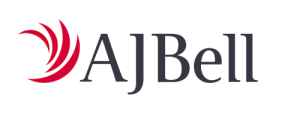Global markets delivered gains in August despite mixed economic signals and potentially adverse political developments. Markets began the month with elevated volatility following weaker US jobs data in the non-farms payrolls announcement, but recovered as Federal Reserve Chair Jerome Powell’s dovish Jackson Hole speech signalled the potential for September rate cuts. Political uncertainty also emerged, with President Trump firing the head of the Bureau of Labor Statistics and attempting to remove Fed Governor Lisa Cook, raising questions about the central bank’s independence.
Regional equity markets posted gains, although currency moves were a headwind to US equity performance. Japan (5.0%) led performance aided by supportive economic data, with the economy showing quarter-on-quarter growth of 0.3% in the second quarter (according to an initial estimate by the Cabinet Office). US markets (-0.1%) showed resilience despite early volatility and were boosted by strong corporate earnings. European markets (1.2%) advanced, helped by resilient activity data with the Eurozone Purchasing Managers’ Index at a one-year high, though French equities faced headwinds following Prime Minister Bayrou’s announcement of a confidence vote, scheduled for 8 September 8. UK markets (1.3%) also posted positive returns, although hotter inflation reported by the Office for National Statistics and a hawkish Bank of England stance tempered rate-cut expectations. Emerging markets (0.0%) were supported by China’s strong performance (3.2%) and aided by the extended US-China trade truce, though Indian markets (-4.2%) faced pressure from new US tariffs.
The macroeconomic backdrop remained mixed but generally supportive. Fed Chair Jerome Powell’s Jackson Hole speech acknowledged shifting economic risks and paved the way for potential rate cuts in the US, although concerns about the Fed’s independence contributed to contributed to long-dated yields moving higher. In Europe, French political uncertainty led to the tightest gap between French and Italian 10-year sovereign yields since 2003. Trade policy remained in the limelight with new US tariffs of 35% for non-USMCA goods being imposed on Canada, though the inflation impact has remained relatively contained.
The overweight position in Aptiv (13.5%) was the top contributor to excess returns in the Trust. The automotive technology supplier announced plans to spin off its “Electrical Distribution Systems” division, which has slower growth and lower margins that its other businesses, into a separate entity. The overweight position in Monolithic Power Systems (15.0%) was also a positive contributor. The semiconductor device company reported second-quarter earnings that were ahead of expectations and gave an optimistic outlook for continuing operations. The underweight position in Apple (9.7%) detracted from performance. Apple shares gained as the company announced it was committing to spending another $100 billion on domestic manufacturing, taking total commitments to $600 billion.
We ended the month at a discount of 7.9%, widening from 6.6% in July. Net gearing continued to be conservative at 4.2% (with debt at fair value) for month-end.
As at 31 August 2025










